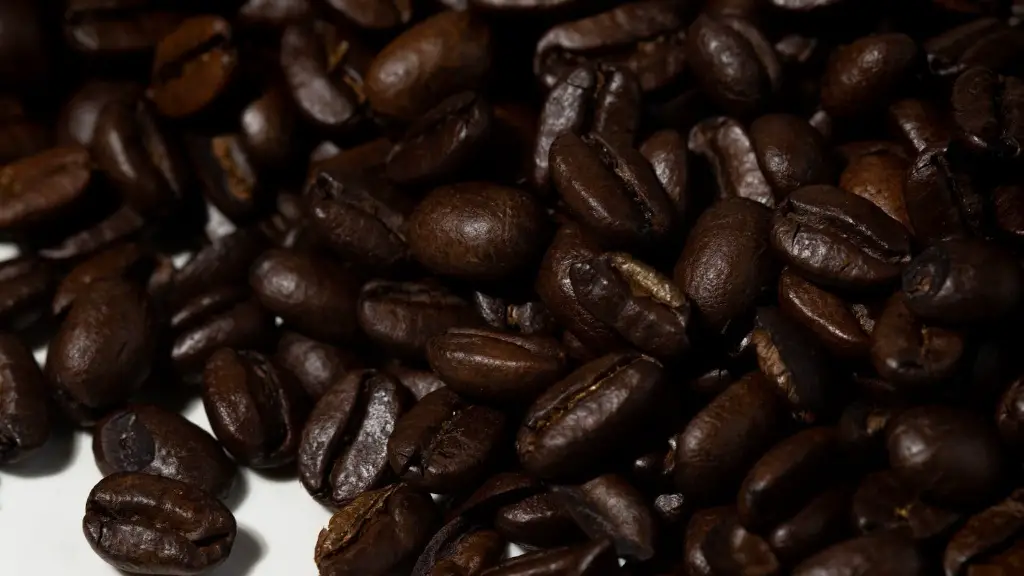Most people drink coffee regularly without major health issues, however some studies suggest that caffeine can have a negative effect on certain medical conditions like high blood pressure. If not consumed responsibly, drinking too much coffee each day could lead to a rise in blood pressure.
Take a look at the facts: Caffeine is a natural stimulant present in coffee, tea, and some energy drinks. Many studies have suggested that caffeine can raise your blood pressure up to 10 mm Hg, especially in those who regularly drink coffee or other caffeinated drinks. In contrast, an occasional cup or two of coffee is not likely to have a major effect on your blood pressure.
Experts say that if caffeine is consumed in moderation – no more than 400 mg per day, or around four cups of coffee – it may have a protective effect on the cardiovascular system. High doses of caffeine on the other hand can be dangerous and could severely affect your blood pressure. Regularly drinking more than four cups of coffee in a day can cause your blood pressure to increase significantly, putting you at risk of developing various health issues.
While the jury is still out on the exact effects of regular coffee consumption on blood pressure, there are some clear signs to look out for. People who regularly drink coffee or any other caffeinated beverages tend to have increased sensitivity to the caffeine, leading to greater effects on their blood pressure. Experts also point out that people with existing medical conditions like heart disease, high cholesterol and diabetes should limit their coffee consumption to a minimum or avoid it entirely. That’s why it’s essential to always consult a doctor before drinking coffee or caffeinated drinks.
How you take your coffee can also influence your risk of developing high blood pressure. Adding creamers and sugar to your coffee can increase your daily calorie intake, leading to weight gain and greater risk of elevated blood pressure. Reducing the amount of creamer, sweeteners and other additives in your coffee will limit the calories and help maintain healthy blood pressure. Similarly, nutrition is one of the most important elements when it comes to controlling hypertension. Eating healthy, regular meals, as well as fruits and vegetables, is crucial to keeping your blood pressure in check and managing your overall health.
The Science Behind The Effect of Coffee on Blood Pressure
Although the research surrounding coffee consumption and blood pressure is still inconclusive, there are numerous studies that have explored the connection. A Chinese study of over 60,000 adults suggested that drinking four to five cups of coffee per day is associated with an increased risk of hypertension. Similarly, a research from the National Health and Nutrition Examination Survey (NHANES) found that those who drank four or more cups of coffee daily had a 22% higher risk of developing high blood pressure than those who drank two or fewer cups.
Most of these studies suggest that the effect of caffeine on blood pressure can be quite significant. The ingredient has been proven to increase alertness and vigilance, leading to a rise in blood pressure levels. However, while the connection between caffeine and elevated blood pressure is often portrayed in a negative light, experts point out that consuming coffee in moderation could actually have a protective effect on the cardiovascular system.
Avoiding The Risk of High Blood Pressure From Drinking Coffee
Drinking coffee is not only a great way to start the day but also beneficial to our health. However, regular coffee consumption can also lead to higher blood pressure if not done so responsibly. Experts recommend that if you are a frequent coffee drinker, limit your daily intake to no more than four cups and avoid drinking coffee too late at night as it can disrupt your sleep cycle and lead to higher stress levels.
There are also several lifestyle changes you can make to reduce your risk of developing high blood pressure from drinking coffee. Regular exercise and eating healthy are essential for maintaining a healthy blood pressure. Fruits and vegetables are also rich in essential minerals and vitamins, helping regulate blood pressure and improve overall wellbeing.
Finally, you should also monitor your coffee consumption and check with your doctor on how much caffeine is safe for you. Keeping track of your daily coffee intake and the number of caffeine-containing products you consume can help minimize your risk of hypertension and keep your blood pressure in check.
Coffee Intake and Other Factors Related To High Blood Pressure
In addition to coffee consumption and lifestyle changes, there are several other risk factors associated with hypertension. Some studies have linked genetics, age and gender with high blood pressure, while other research has identified high salt consumption and stress as contributing factors. As such, understanding the underlying causes of your high blood pressure could help you better manage the condition and avoid serious health problems.
Ultimately, the effects of coffee consumption on blood pressure can vary from one person to another. While caffeine can be beneficial for some, it can also lead to increased blood pressure in others. Therefore, it is important to be mindful of your daily coffee intake and practice healthy lifestyle habits to keep your blood pressure in check.
Managing High Blood Pressure with Diet and Supplements
If you have been diagnosed with high blood pressure, managing the condition can be challenging. One of the main ways to reduce and control blood pressure is to make lifestyle changes, such as eating a balanced diet and exercising regularly. Additionally, reducing your salt intake and cutting down on caffeinated beverages are also essential for keeping your blood pressure in check.
Accompanying your diet and exercise with natural supplements such as magnesium and omega-3 fatty acids can also help reduce hypertension. Supplements like magnesium can help relax the arteries and reduce the effects of stress on your cardiovascular system. Omega-3 fatty acids help decrease inflammation, helping reduce your risk of high blood pressure. Additionally, vitamins such as D and B-complex can help improve circulation and reduce your risk of hypertension.
Besides these natural supplements, some studies suggest that certain herbal remedies, such as garlic and ginger, could help reduce blood pressure. While more research is needed, having a healthy diet and combining it with supplements and natural remedies could be an effective way to manage high blood pressure.
Managing Stress and Living a Healthy Life
Finally, managing stress levels is also one of the most important aspects when it comes to avoiding hypertension. Stress causes the body to produce hormones like adrenaline and cortisol that can overwork your heart and raise blood pressure. Identifying and avoiding stress triggers, as well as learning techniques to cope with stress can help reduce your risk of developing hypertension.
Living an overall healthy life is essential for managing high blood pressure and avoiding serious complications. Eating regular, healthy meals and exercising regularly are some of the best ways to stay healthy and avoid hypertension. Additionally, adopting a positive attitude and setting reasonable goals for yourself can help reduce stress and keep your blood pressure in check.




